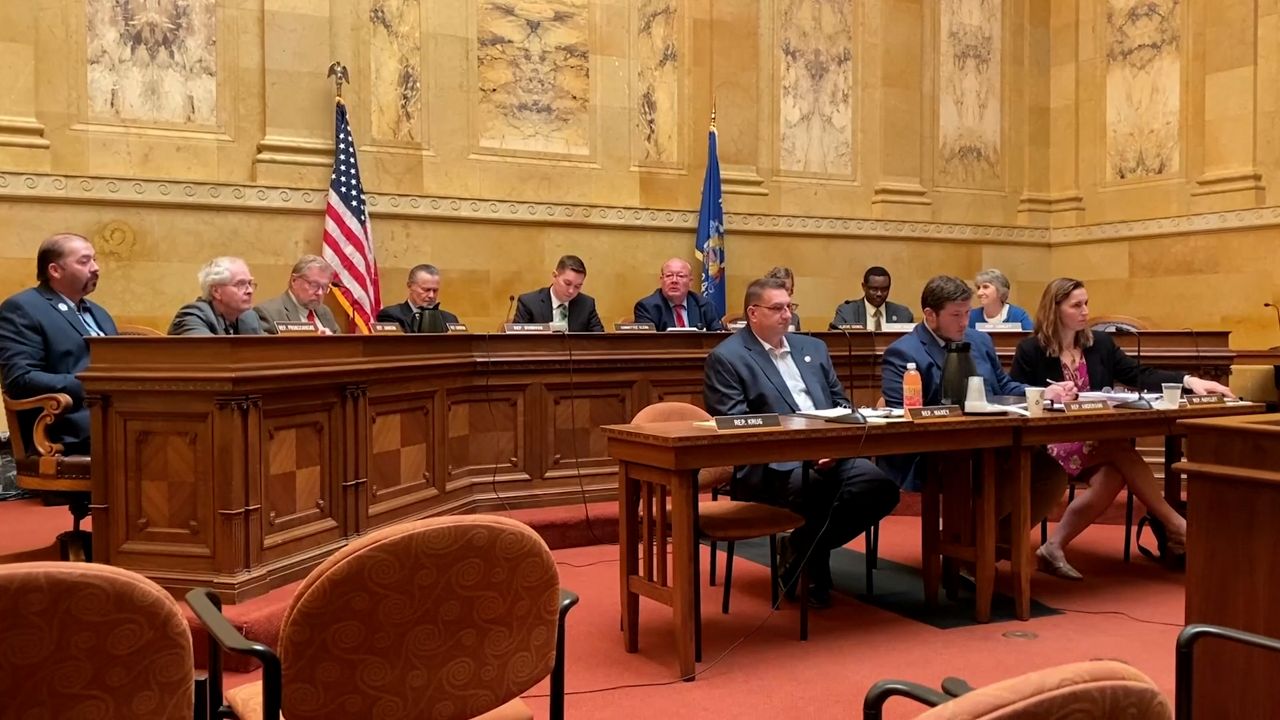MADISON, Wis. — The first test of compromise between Republicans and Democrats amid Gov. Tony Evers’ second term could unfold on the floor this week with lawmakers in the Assembly expected to take up the much talked about shared revenue bill.
The answer to the question will depend on who you ask.
During a vote by the Assembly’s Committee on Local Government last week, Democrats proposed an amendment that would have made the GOP-authored legislation a so-called “clean bill.”
As of right now, the legislation by Republicans would do two main things: first, it would give 20% of the state’s sales tax back to local communities to help pay for critical services, which is known as shared revenue. Secondly, the City of Milwaukee and Milwaukee County would both be allowed to raise their local sales tax to help get out from under their local pension funding shortfalls.

However, changes to how the state shares money with local governments would come with some strings attached for towns and cities to get that money, according to Democrats who called for eliminating those provisions to help open negotiations.
Republicans on the committee rejected that idea last week and insisted there have been plenty of bipartisan talks. Members voted to send the bill to the floor “as is” by an 8-4 vote along party lines.
Some of the provisions would apply to communities across the state, while others would be Milwaukee-specific. The reason extra conditions apply to Milwaukee is because the city and county would be allowed a special power, through the ability to raise the local sales tax, which other municipalities were not given, since they do not face the same pension issues.
Republicans have said by allowing Milwaukee that added tool to bring in revenue, use of the resource should not amount to a blank check. In other words, lawmakers want some sort of accountability mechanism.
As for statewide provisions, those would include a ban on local advisory referenda, which have been popular on issues such as marijuana and abortion rights, as well as restrictions on local health officials to prevent them from closing businesses for more than two weeks amid a pandemic, and minimum investments made in public safety.
With the amendment by Democrats swiftly rejected, so far, not much has changed with the legislation since Gov. Evers vowed to veto it because he felt it did not invest enough and came with too many requirements.
During last week’s executive session, State Rep. Todd Novak, R-Dodgeville, who chairs the Assembly Committee on Local Government, did acknowledge negotiations were still ongoing and told members to expect some amendments from Republicans on the floor this week.
However, what those amendments look like, and whether they account for some of the concerns raised by Democrats remains to be seen.


